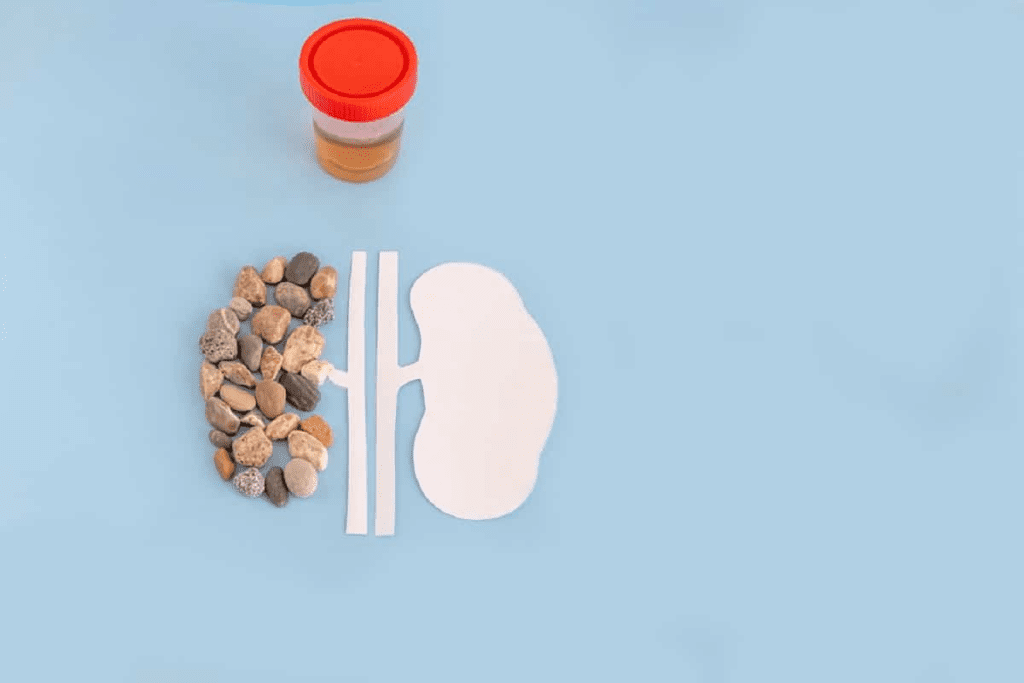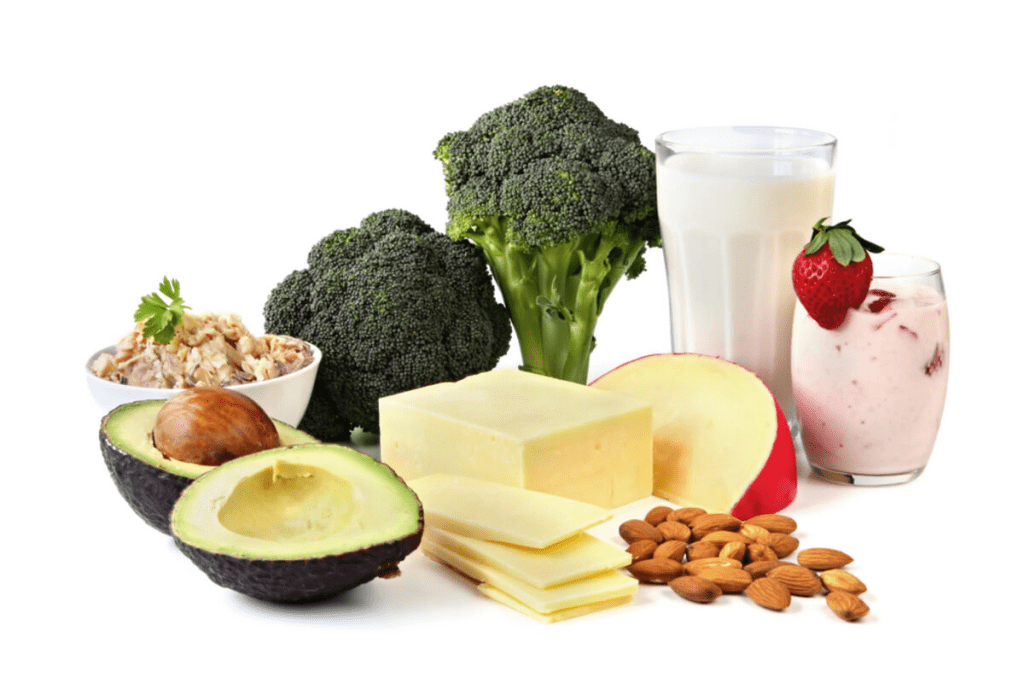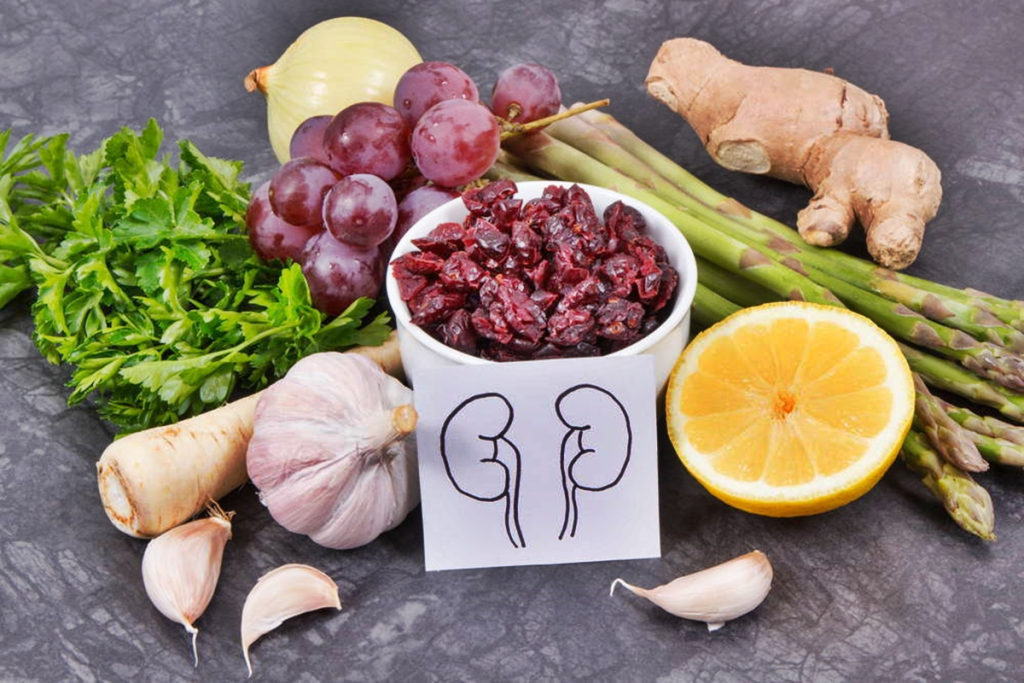Last Updated on October 31, 2025 by
what causes kidney stones? While some foods can’t directly “melt” kidney stones, what you eat is very important. It helps prevent stones and keeps your kidneys healthy. Studies show that staying hydrated and eating the right foods can lower your risk of getting kidney stones.
Drinking lots of water is key to passing stones and stopping new ones. Apple cider vinegar and lemon juice might also help, but their effects are not proven yet.

At Liv Hospital, we stress the need for a balanced diet to fight kidney stones. Our team gives personalized nutrition advice. This helps patients make better food choices.
Diet plays a big role in how kidney stones form and how they can be treated. Some foods are said to “melt” kidney stones, but what does this really mean?
The idea of “melting” kidney stones with food is a bit of a myth. What’s true is that some foods can help prevent kidney stones or help them break down naturally. Eating lots of fruits, vegetables, and whole grains can lower your risk of getting kidney stones.

Studies show that certain foods can help stop kidney stones from forming or help them dissolve. A diet to prevent kidney stones focuses on avoiding foods that can cause stones. For example, people who get calcium oxalate stones should eat fewer foods high in oxalate.
Changing what you eat is key to managing and preventing kidney stones. The DASH diet is often suggested for those with kidney stones. It not only lowers the risk of stones but also boosts overall health by focusing on whole grains, fruits, and veggies.
Knowing what causes kidney stones and how diet affects them is vital for prevention. By choosing the right foods, you can greatly lower your risk of getting kidney stones. It’s all about finding a balance that keeps your kidneys healthy.
To prevent kidney stones, it’s key to know what causes them and who might get them. Kidney stones are a common issue that affects many people around the world.
Kidney stones come in different types, like calcium oxalate stones, uric acid stones, and cystine stones. The most common is calcium oxalate stones. They form when there’s too much oxalate in the urine.
The process of forming kidney stones is complex. It’s influenced by diet, genetics, and lifestyle. For instance, eating a lot of animal protein and sodium can raise your risk.

Several factors can lead to kidney stones, including dehydration, family history, and dietary factors. Eating too much oxalate, sodium, and animal protein can up your risk.
By knowing the causes of kidney stones and the risk factors, people can take steps to prevent them. This can help lower the chance of getting this painful condition.
Citrus fruits like lemons and oranges are full of citrate. This helps prevent kidney stones. Eating these fruits or their juices boosts urine citrate levels. This makes it harder for stones to form.
Knowing what causes kidney stones is key to preventing them. Diet is a big part, but hydration and health matter too. Foods high in sodium and oxalate should be limited.
Other foods, like broccoli and kale, can also help your kidneys. Making smart food choices can lower your risk of kidney stones. If you have pain, drink lots of water and see a doctor if it doesn’t go away.
Eating citrus fruits like lemons and oranges can help prevent kidney stones. They are full of citrate. Foods rich in calcium, magnesium, and potassium also help lower the risk of stones.
Yes, some foods can raise your risk of getting kidney stones. Foods high in oxalate, like spinach and beets, can lead to oxalate stones. Also, a diet full of animal protein, sodium, and sugar can increase your risk.
Drinking enough water is key to preventing kidney stones. It helps dilute minerals in your urine, lowering the risk of stones. We suggest drinking at least eight glasses of water a day to prevent stones.
The most common kidney stones are calcium oxalate, uric acid, struvite, and cystine stones. Knowing the type of stone you have can help guide your diet to prevent more stones.
Dietary changes can’t directly ease kidney stone pain. But, making smart food choices can lower your risk of stones and help manage symptoms. Drinking plenty of water and avoiding certain foods can also help.
A diet to prevent kidney stones includes more citrate, calcium, and water. It’s also good to eat less oxalate, animal protein, and sodium. Talking to a healthcare professional or dietitian can help make a diet plan just for you.
If you have a family history of kidney stones, making smart food choices and drinking plenty of water can help. Also, talking to your doctor about your family history can help find ways to prevent stones.
Subscribe to our e-newsletter to stay informed about the latest innovations in the world of health and exclusive offers!